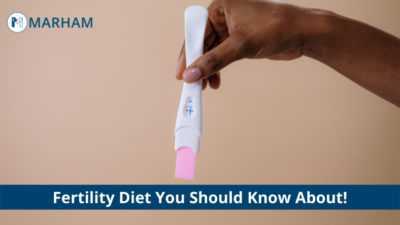Infertility is becoming a global problem nowadays. The spike in hormonal problem cases is the main reason behind infertility. And according to most of the researchers and health specialists, our lifestyle and diet are the two main factors that are influencing our hormonal balance and fertility. So it is important to know about food that are considered a good fertility diet.
Infertility is defined as the inability to conceive after one year (or longer) of unprotected sex. And on the other hand, fertility is the ability to produce offspring through reproduction after reaching sexual maturity.
Infertility is a serious health problem that affects approximately 8%–10% of couples worldwide. Infertility affects millions of people of reproductive age around the world, as well as their families and communities. According to estimates of World Health Organization, 48 million couples and 186 million individuals worldwide suffer from infertility.
Types Of Infertility:
There are two types of infertility; primary or secondary. A person has primary infertility if they have never had a pregnancy, and secondary infertility if they have had at least one prior pregnancy.
Factors Affecting Fertility:
Multiple factors influence the fertility of both men and women. Your lifestyle, diet, family history, physiology, and many other factors are responsible for causing infertility.
Eating a healthy diet can combat this problem, Some foods are rich in nutrients that boosts the fertility of both males and females.
Fertility Diet List:
Here we will discus the foods that are considered as fertility diet.
Fruits:
Citrus fruits, such as oranges and grapefruits, are excellent sources of vitamin C. Fruits and berries are high in vitamin C and folic acid, which promotes healthy foetal growth after conception. Raspberries, blueberries, and strawberries are all high in natural antioxidants and anti-inflammatory phytonutrients, which help both men and women conceive. According to this study, women who ate a lot of fruit had a lower chance of getting pregnant. Grapefruit and oranges contain the polyamine putrescine, which has been linked to improved egg and sperm health in animal studies.
Egg:
Most people avoid eating the yolk of an egg to save calories, but the yolk contains vitamin B and essential omega-3 fatty acids. Yolks also contain folic acid, which aids in the production of red blood cells and the maintenance of embryo development after conception. Choline, which is found in eggs, may help to reduce the risk of certain birth defects.
They are a low-cost source of lean protein, which has been shown to improve fertility in both men and women
Avocado:
Avocadoes are an excellent source of vitamin E, which has been shown in studies to be beneficial in improving the uterine lining. They also contain monounsaturated fats (healthy fats) and a lot of dietary fiber and folic acid, both of which are important during the early stages of pregnancy.
They are also high in potassium, folate, and vitamin K, which aid in the absorption of other vitamins. That is why they are the best fruit to be included in your fertility diet.
Salmon:
Salmon is high in protein and omega-3 fatty acids, which help fetal development throughout pregnancy. Men can benefit from eating salmon because of its high levels of vitamin D and selenium, two components that increase sperm levels and improve overall health.
Salmon is a great food to eat if you want to increase your fertility because it contains omega-3 fatty acids and DHA, which are important for babies’ brain and eye development.
Keep in mind that purchasing wild-caught salmon reduces the presence of mercury, which can be harmful to a pregnancy if consumed in excess. To be on the safe side, limit your salmon consumption to once or twice a week.
Lentils and beans
Beans and lentils are good source of fiber and protein, both of which can aid in ovulation. Several studies have found that substituting vegetable protein for animal protein can reduce the risk of ovulatory infertility. Lentils also have a high concentration of the polyamine spermidine, which may aid sperm fertilization.
Lentils and beans are also high in protein, which can aid in the promotion of healthier ovulation. Almost all of these legumes are also high in folic acid, a critical nutrient that assist in conception and healthy embryo development.
Walnuts:
Walnuts contain a high concentration of omega-3 and omega-6 fatty acids. This is one of the factors that prompted researchers to consider whether they could help with fertility.
Men who eat walnuts on a regular basis have better semen health, with better motility, quantity, and morphology, according to research.
If you are struggling with infertility, you can consult the best gynecologists in Pakistan to discus your case.
If you want to know more health benefits of Flaxseeds and Flaxseed oil, you can consult with the best gynecologists in Karachi. You can book an appointment with the best health specialists through Marham by calling the Marham helpline: 0311-1222398 or by online booking facility through the website or Marham mobile app.
| Android | IOS |
|---|---|
  |
  |
FAQs
-
What is infertility?
Infertility is defined as the inability to conceive after one year (or longer) of unprotected sex.
-
What is a good fertility diet?
A good fertility diet has fruits like citrus fruits, berries, water melon, pomegranate, avocadoes, lentils, salmon, nuts like walnuts, egg yolks etc.
-
Is avocado good for fertility?
Yes avocado is a good fruit to improve the fertility. It is a healthy source of fats and many vitamins that are helpful in combating infertility.

